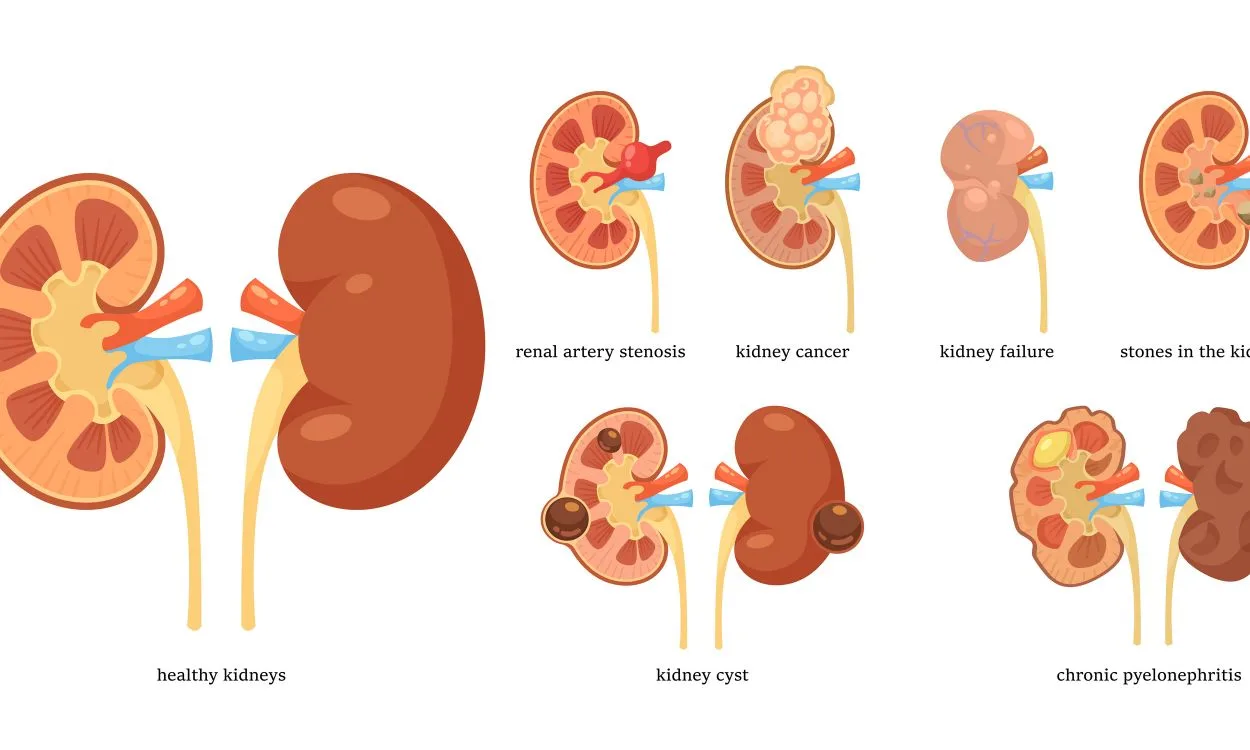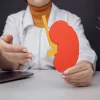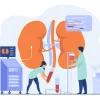What are the symptoms of kidney disease?
Kidney disease, also known as renal disease, refers to the damage or impairment of the kidneys’ ability to filter waste products and excess fluids from the blood. It is a serious condition that can have a significant impact on a person’s health and well-being. Recognizing the symptoms of kidney disease is crucial for early detection and timely treatment. In this article, we will explore the common symptoms of kidney disease, their possible causes, and when to seek medical attention.
1. Changes in Urination Patterns
One of the primary functions of the kidneys is to regulate the production of urine. Therefore, changes in urination patterns can be an early indication of kidney dysfunction. Look out for the following symptoms:
- Increased frequency of urination: Needing to urinate more frequently and in larger amounts than usual.
- Decreased urine output: Producing less urine than normal or experiencing difficulties in urination.
- Blood in urine: The presence of blood in the urine, which may appear pink, red, or brown.
2. Swelling and Fluid Retention
Healthy kidneys help maintain the balance of fluids and electrolytes in the body. When the kidneys are not functioning properly, excess fluid and waste products can build up, leading to swelling and fluid retention. Keep an eye out for the following signs:
- Swelling in the legs, ankles, feet, or hands: Edema, or swelling, caused by fluid accumulation in the tissues.
- Puffiness around the eyes: Swelling in the orbital region, particularly upon waking in the morning.
3. Fatigue and Weakness
Kidney disease can cause a decrease in the production of erythropoietin, a hormone responsible for stimulating red blood cell production. As a result, anemia can develop, leading to fatigue and weakness. Look for the following symptoms:
- Persistent fatigue: Feeling tired, sluggish, or lacking energy even after getting enough rest.
- Generalized weakness: Difficulty performing routine tasks or experiencing a decline in physical strength.
4. Loss of Appetite and Weight Loss
Changes in appetite and weight loss can be indicative of kidney disease. As waste products accumulate in the blood, it can affect digestion and lead to a decreased desire to eat. Pay attention to the following signs:
- Loss of appetite: A reduced desire to eat or a feeling of fullness even without consuming a significant amount of food.
- Unexplained weight loss: Losing weight without trying or experiencing a decrease in muscle mass.
5. Nausea and Vomiting
Kidney disease can cause a buildup of waste products and toxins in the body, leading to gastrointestinal symptoms such as nausea and vomiting. These symptoms can be particularly severe in advanced stages of kidney disease. Look for the following signs:
- Nausea: Feeling queasy, having an upset stomach, or experiencing the urge to vomit.
- Vomiting: The act of forcefully expelling stomach contents through the mouth.
6. Itching and Dry Skin
Impaired kidney function can disrupt the balance of minerals and nutrients in the body, leading to skin-related symptoms. Pay attention to the following symptoms:
- Persistent itching: Feeling the need to scratch the skin frequently, often accompanied by dryness.
- Dry skin: Skin that feels rough, tight, or lacks moisture.
7. High Blood Pressure
The kidneys play a vital role in regulating blood pressure. When they are damaged, blood pressure can rise to unhealthy levels. Monitoring blood pressure regularly is crucial for early detection of kidney disease. Look out for the following signs:
- Hypertension: Consistently high blood pressure readings, typically exceeding 140/90 mmHg.
If you experience any of these symptoms, it is essential to consult a healthcare professional for a proper diagnosis. Early detection and treatment can help slow down the progression of kidney disease and improve long-term outcomes.
While this article provides information about the symptoms of kidney disease, it is important to note that it is not exhaustive. Other symptoms, such as muscle cramps, difficulty concentrating, and frequent urinary tract infections, may also indicate kidney dysfunction. It is always best to seek medical advice for a comprehensive evaluation.
Now that you are aware of the symptoms of kidney disease, it is crucial to take proactive steps to maintain your overall health. Fitpaa, a leading health and fitness app, can assist you in achieving your health goals while ensuring your well-being. Download the Fitpaa app today to access personalized fitness plans, nutritional guidance, and real-time monitoring. Take control of your health and embark on a journey towards a healthier and happier life with Fitpaa.









